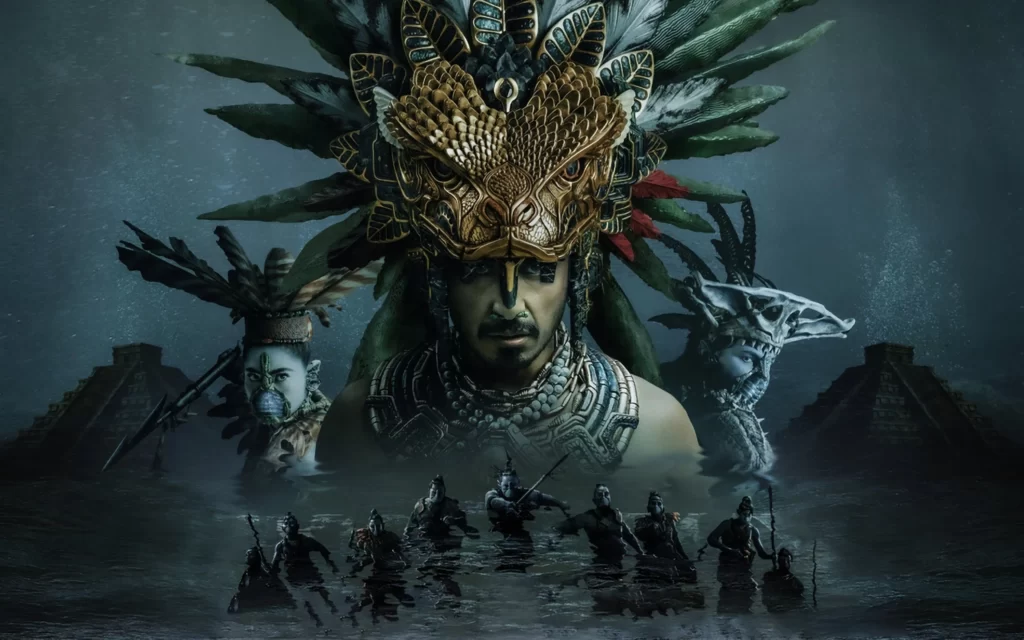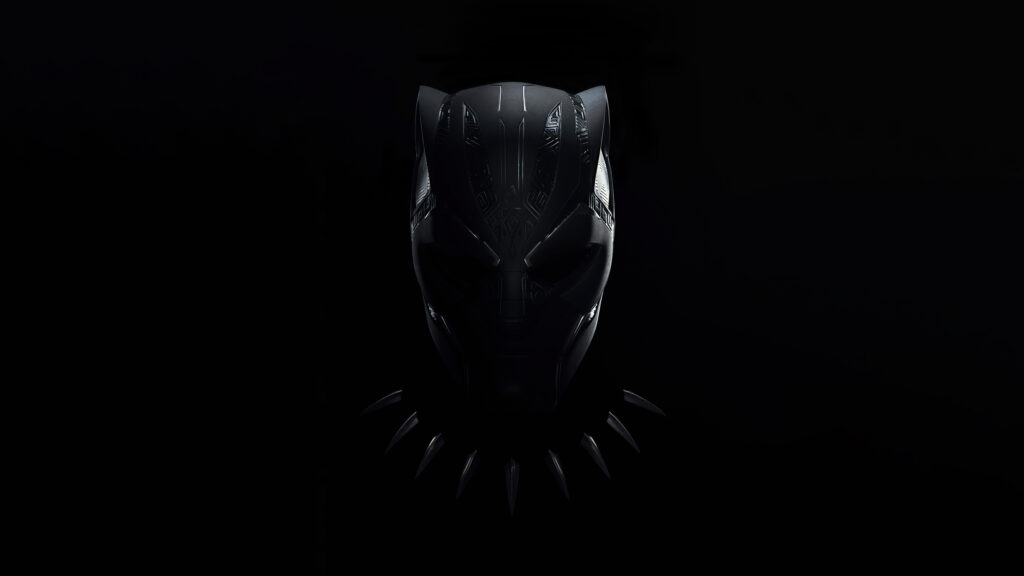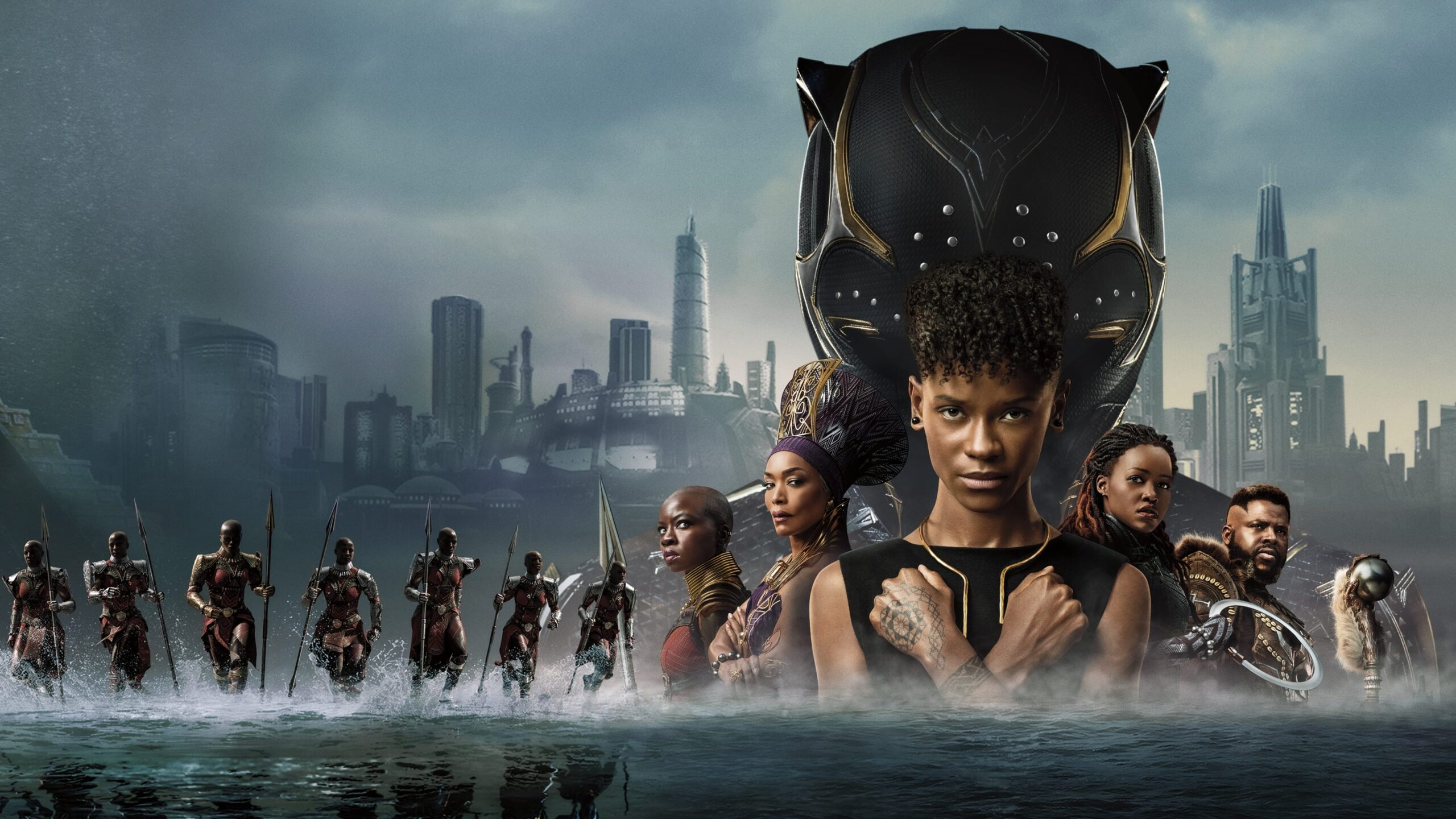Help keep The Curb independent by joining our Patreon.
Black Panther: Wakanda Forever treads dangerous ground with its reflection of reality within fiction. Chadwick Boseman’s passing in 2020 was an unforseen tragedy that affected virtually all corners of the film industry, a loss that was tremendous and unfathomable. How could a man so bright and beautiful in all of his 14 film appearances just not be around anymore? As I write these words and having seen Wakanda Forever twice, I still struggle to realise that he is no longer here.
Boseman had a posthumous release with Ma Rainey’s Black Bottom and an episode of the Marvel Studios animated series What If?… playing T’Challa if he had been abducted by Yondu in Guardians of the Galaxy instead of Peter Quill, but one issue remained: what about T’Challa himself? Marvel Studios made the announcement in late 2020 that his role would not be recast and the Black Panther sequel would move on with the existing characters and acknowledge his passing within the film’s story.
Is it dangerous to let a piece of fiction directly reflect reality with T’Challa? The superhero dies off-screen in the opening sequence of Wakanda Forever in a manner that feels similar to Boseman’s real passing from colon cancer that went unknown by many. Dangerous, it is. But it’s a testament to the strength of all the filmmakers, cast and crew, that the way forward is one of emotional honesty and a courage born from healing together.
With T’Challa gone, the responsibility of the crown, the mantle of Black Panther, and indeed the whole film rests on the shoulders of Letitia Wright’s Shuri. Her character blames herself for T’Challa’s death, saying that she could have done more to save him, and thus builds more technology and works harder to save everyone she can. Wright plays Shuri like a tightly-wound drum, with little of the smiling and bubbling kid that almost completely stole the first film, and rightly so. Shuri’s character arc is defined not only as one about grief but also faith and her relationship with a belief in something more than oneself. Her mother Queen Ramonda (Angela Bassett) believes that T’Challa is with her always and that she can feel his hand on her shoulder, but Shuri rejects this as it makes no sense in her rational and scientific mind. In a confident move, director and co-writer Ryan Coogler builds Shuri up more as a leader and a hero, putting her through trials and tribulations to become the next Black Panther, but in the end she is still herself. She does not instantly believe in gods and magic and powers beyond the mortal realm. When faced with a single quiet moment towards the end of the film, to sit in contemplation and reconciling with the end of a grieving period, she does not feel a spirit manifest to soothe her physically nor is T’Challa a vision from the ancestral plane. Instead, all she has is simple memories of her brother that bring a pyrrhic happiness, and we are completely in that scene with Wright. To take on so much for unimaginable reasons, Wright gives a truly extraordinary performance that never once falters.
As for the specific plot of the sequel, T’Challa’s passing opens up holes in the security of Wakanda. Shuri must come to terms with perhaps becoming the next Black Panther and the United States government will stop at nothing to expose this weakness and gain control of vibranium for themselves. But the rapacious hunger of America exposes a new source of the indestructible element at the bottom of the ocean, awakening and angering the people of the underwater kingdom Talokan and their ruthless leader Namor (Tenoch Huerta Mejia).

Namor instructs Wakanda to find the American scientist who created a vibranium-detecting machine or else Talokan will wage war on Wakanda. War comes all the same as Shuri and Okoye (Danai Gurira) try to save this scientist, Riri Williams (Dominique Thorne), from the American military and Talokan’s warriors. Even Shuri’s attempts to reason with Namor prove folly as these aquatic people are descendants of Indigenous Mayans driven from their homes and persecuted by the Spanish invaders. The surface world is not a source of cooperation but that of power-hungry colonists who even in the ever-expansive world of the Marvel Cinematic Universe are still out to hunt down and exploit Black and Indigenous people of colour. Namor’s reasons are as sound as Killmonger’s in the previous film, both realising that change must come from a destruction of the systems which seek to persecute, but both have been twisted by a lack of wider perspectives of others. Their villain arcs have several similarities, and both make such a tremendous impact on their respective films, but Killmonger was too far gone in his methods to ever be truly saved. Namor comes from a different place. He is a proud leader of a people who’s underwater fortress and community mirrors that of Wakanda, and he is respected and loved by hundreds. He is powerful and has no hesitation to use that power when threatened, and even when he kills without remorse and seeks to destroy anything in his way, the incredible Tenoch Huerta Mejia imbues this classic Marvel anti-hero with a beautiful soul beneath an imposing figure. To see Shuri and Namor’s dynamic evolve and climax not in one killing another but a mercy that T’Challa himself was able to muster with Baron Zemo in Captain America: Civil War is a thing of poetic beauty. His survival establishes himself as a Loki-type figure, at times villainous but not without humanity.
Other characters returning from the first film fill the spaces and are given a reenergised focus that evolves each one into clearer and essential parts of the narrative. Danai Gurira’s Okoye once again receives some of the finest action beats of the movie, but is posed with a loss of her title and respect from the crown because of her failure to protect Shuri, pushing her to find a deeper sense of self-worth perhaps not afforded by being a Dora Milajie. Winston Duke’s M’Baku has perhaps the funniest lines in the whole film, a warm return to his scene-stealing presence in the first movie, but he is now a warmer man, ready to comfort Shuri in her darkest moments. Lupita Nyong’o’s Nakia is absent for at least the first hour, but her entrance brings with it a stronger heart for the movie as she was close to T’Challa in a way no one else can relate to, and is a guidance to Shuri’s inner peace, which I can always believe from the radiant Nyong’o. And in an extraordinary refocus from her first appearance, Angela Bassett’s Queen Ramonda is angry at the world that seeks to destroy her home, shattered from the loss of her son, and protective of all she has left. When Okoye fails to bring Shuri home from their rescue mission of Riri Williams, Bassett delivers a monologue so monumental and singular, a new addition to her rich pantheon of powerful emotional performances, one of the very best performances in all of the Marvel Cinematic Universe, and already iconic from the very first trailer.
Dominique Thorne’s Riri Williams, who becomes Iron Man’s successor Ironheart both in the comics and on-screen, makes an impressive debut, confident and flawed in her own right and makes for a delightful sisterly dynamic with Shuri. Though she is set to continue in the MCU, one cannot help but feel disappointed that her next appearance is in a Disney+ series, somewhat of a step-down from the cinematic trilogy afforded to Robert Downey Jr.’s Iron Man. I do appreciate Martin Freeman’s return as Agent Everett Ross but his inclusion is bogged down by Julia Louis-Dreyfus’ Valentina Allegra de Fontaine who’s improv shtick was tiresome in Falcon and the Winter Soldier and is a constant distraction in this film, the film’s most gaping flaw.
Wakanda Forever is, somehow, a more handsome production than its predecessor, with cinematographer Autumn Durald Arkapaw granting the film an increased level of visual prowess, whether in lens choices or lighting, many of the images becoming some of the MCU’s most beautiful by far. The production design, costuming, and sound work is top notch as always, and the visual effects feel far more dedicated and refined than the rather disappointing work of the predecessor’s finale. Ludwig Göransson builds on his Oscar-winning work with a score that is more inspired and ambitious, with the titular track “Wakanda Forever” perhaps being his finest moment as a composer, and “Árboles Bajo El Mar” and “We Know What You Whisper” displaying a rich balance of African and Mayan influences, employed with Göransson’s signature production values.
Wakanda Forever struggles to justify its length at 161 minutes, the second-longest film in the MCU, several moments of visual darkness lack a clarity necessary to get a full-scale of what is on screen, and several editing moments stick out of place. When it falters, we feel it compare roughly to the solid construction of Black Panther, but when Ryan Coogler’s film succeeds, it is one of the finest films in this Marvel universe. This is a work of pain and love, of grief and acceptance, of anger and peace. It is striving for a mythic quality to its characters and story, a kind of dark fairytale that balances so much story and themes but finds a beautiful throughline in the end. We have our expected action set pieces, delivered with exceptional choreography and a visceral nature often lacking in Marvel movies, but Wakanda Forever ends on a note of everlasting quiet as Shuri sees the beauty in her brother’s memory. The film ends at first with Shuri coming to terms with her grief, but the mid-credits are seconds after this moment with Nakia introducing Shuri to her son Toussaint, a bright and beautiful 6-year-old boy. In a mirror to the first film’s end of asking the hero his name, Shuri asks the boy what his Wakandan name is, to which he replies “I am Prince T’Challa, son of King T’Challa”. Thus Ryan Coogler leaves his audience in tears knowing that Chadwick Boseman was not only remembered and grieved for, but honoured with a monumental impact on the story of Black Panther: Wakanda Forever, and indeed the future of the Marvel Cinematic Universe.



Director: Ryan Coogler
Writers: Ryan Coogler and Joe Robert Cole (based on Marvel Comics characters)
Starring: Letitia Wright, Lupita Nyong’o, Danai Gurira, Angela Bassett, Tenoch Huerta Mejia



